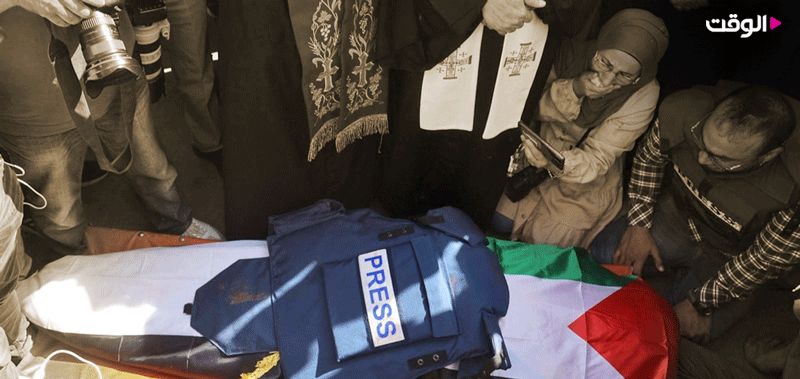Alwaght- The killing of the veteran Aljazeera journalist Shereen Abu Aqleh by the Israeli fire in Jenin Camp in cold blood drew international reactions to this apparently criminal act. Meanwhile, the Arab countries advocating the normalization with the Israeli regime did not raise their voice in condemnation along with the international community either in support of rights of the journalists or rights of the Palestinian people.
This approach, in addition to the support for Tel Aviv and their will for normalization and burning the Palestinian cause, certainly has roots in a less known aspect which is their authoritarian nature's discordance to the freedom of media as a principle of the open political culture and democratic systems.
From another aspect, it is a fact that governments such as Saudi Arabia, the UAE, Bahrai, and Egypt, which are supporters of the normalization process, see the activities of Qatar's Aljazeera as part of a rivalry in the Arab world and a security threat to their regional interests and internal stability of their regimes.
Considering Aljazeera a Muslim Brotherhood camp's threat; from regional uprisings to regional competitions
Aljazeera is funded by the Qatari government and is a powerful media arm for Doha to influence the course of developments in the Arab world. Aljazeera along with its main Arabic and English channels operates Balkans, sports, kids, documentary, and live services in rivalry with Saudi-funded Al-Arabiya and the UAE-funded Sky News Arabia.
When Aljazeera was founded in 1996, it made a splash in the Arab media horizon.
At the time, news coverage and television programs were of poor quality and heavily censored under the control of conservative Arab governments. But suddenly, a network was born that provided extensive and relatively uncensored coverage of regional and international developments in the sleek style of Western news channels such as the BBC and CNN.
Most importantly, when an important and major event in the Arab world, such as the second Palestinian intifada in 2000, against the Israeli occupation took place, Arab audiences no longer had to turn to pro-Israeli Western media to see about what was happening. Instead, they saw Arab journalists covering the news in a fair picture, disclosing the Israeli oppression against the Palestinians.
This transformational trend continued as Aljazeera covered Afghanistan and Iraq wars. Its coverage was so influential that contemporaneous US President George W. Bush described Aljazeera reports on the tolls of two wars provocative and complained to Qatari leaders that Aljazeera programs were opposed to the American actions in the region.
This free and pro-Arab approach has been a source of fury of Persian Gulf monarchies' rulers who want control on news provided to their citizens.
In such atmosphere, the beginning of the Arab uprisings initiated a turning point in the Arab conservative governments' antipathy to Aljazeera. Seriously afraid that Arab uprisings would reach their doorsteps, Saudi, Emirati, and Bahraini governments deemed massive Aljazeera coverage of the protests as a solidarity with the revolting masses. Even worse, they accused Aljazeera of inciting revolutions in the Arab world.
Al Jazeera also covered the Muslim Brotherhood's movements and actions in particular, while Saudi Arabia, the UAE, Bahrain, and Egypt viewed the Muslim Brotherhood as a potential threat to political stability and regional influence in the Arab world.
This tendency to deem Aljazeera a threat source showed its bare face in the Persian Gulf Cooperation Council crisis in June 2017 when Riyadh, Abu Dhabi, Cairo, and Manama severed diplomatic ties with Doha and imposed all-out blockade against it. Shutting down Aljazeera was one of the 13 preconditions presented by the blockaders for reconciliation with Qatar.
But Qatar refused to close down the heavyweight network. Instead, the network launched a heavy coverage campaign on the adversary four. It intensively covered assassination of Saudi Crown Prince Mohammed bin Salman's critic Jamal Khashoggi in 2018 by Riyadh-sent hit squad, disclosed coercive policies of coup-born government of Abdel Fatah el-Sisi of Egypt, relatively covered the Saudi crimes in Yemen, and even surprisingly brought in spotlight the forgotten Bahrain popular uprising against Al Khalifa regime. This approach has been challenging to the four countries in security and political terms.
The indifference of the pro-normalization states to the killing of Aljazeera correspondent indicates that not only there is a gap with Qatar over the thaw with the Israeli regime but also the Cooperation Council's reconciliation and end of crisis with Doha were just for shoe and differences with it on various regional issues is still serious.



























